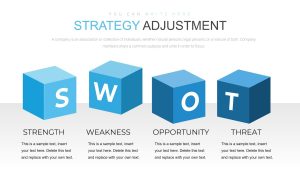Introduction
In today’s digital age, online advertising has become paramount for small businesses aiming to thrive in competitive markets. Understanding the dynamics of online advertising and crafting a strategic approach can significantly impact business growth. Let’s delve into the essentials of online advertising for small enterprises.
What is online advertising?
Online advertising encompasses promotional efforts conducted over the internet to reach and engage with potential customers. It includes various forms such as display ads, social media ads, search engine marketing, email marketing, and more.
Importance of online advertising for small businesses

Online advertising offers small businesses a cost-effective means to enhance visibility, expand reach, and drive sales. By leveraging digital platforms, businesses can target specific demographics, measure performance metrics, and optimize campaigns for maximum impact.
Understanding the Basics
Defining online advertising
Online advertising involves promoting products or services through digital channels to attract and convert prospects into customers. It employs various techniques to deliver targeted messages to the intended audience, driving brand awareness and conversions.
Types of online advertising
- Search Engine Marketing (SEM): Utilizes paid search ads to appear prominently in search engine results pages.
- Social Media Advertising: Targets users on social platforms like Facebook, Instagram, and LinkedIn through sponsored content.
- Display Advertising: Utilizes visual banners or videos on websites and apps to showcase products or services.
- Email Marketing: Engages subscribers through personalized emails containing promotional content.
Benefits of online advertising for small businesses
- Enhanced Reach: Online advertising allows small businesses to reach a global audience, breaking geographical barriers.
- Targeted Marketing: Businesses can target specific demographics based on interests, behaviors, and preferences, ensuring message relevancy.
- Cost Efficiency: Compared to traditional advertising, online ads often offer lower costs per impression and higher return on investment (ROI).
- Measurable Results: Digital advertising platforms provide robust analytics tools to track performance metrics and optimize campaigns in real-time.
Crafting Your Strategy
Setting goals
Before launching an online advertising campaign, it’s crucial to establish clear objectives aligned with business goals. Whether it’s increasing website traffic, generating leads, or boosting sales, defining measurable targets ensures focused efforts and measurable outcomes.
Identifying your target audience
Understanding your target audience’s demographics, interests, and online behavior is essential for effective targeting. Conduct market research, analyze customer data, and create buyer personas to tailor your messaging and content to resonate with the intended audience.
Choosing the right platforms

Selecting the appropriate online advertising platforms depends on your target audience and campaign objectives. Consider factors such as platform demographics, ad formats, and budget requirements to determine the most suitable channels for reaching your audience effectively.
Creating Compelling Content
Content creation strategies
Crafting compelling content that resonates with your target audience is crucial for driving engagement and conversions. Focus on delivering value, addressing pain points, and showcasing unique selling propositions to capture audience interest and compel action.
Visual content
Incorporating visually appealing elements such as images, videos, infographics, and animations can enhance the effectiveness of your online ads. Visual content attracts attention, communicates messages more effectively, and encourages audience interaction.
Calls to action
Including clear and compelling calls to action (CTAs) prompts users to take desired actions, such as making a purchase, signing up for a newsletter, or requesting more information. Use actionable language and strategic placement to encourage conversions.
Maximizing Your Budget
Cost-effective advertising methods
Small businesses with limited budgets can leverage cost-effective advertising methods to maximize their marketing efforts. Explore options like social media advertising, content marketing, influencer partnerships, and email campaigns to achieve optimal results within budget constraints.
Budget allocation tips
Allocate your advertising budget strategically across different channels based on their performance and potential for reaching your target audience. Monitor campaign metrics, adjust spending priorities, and optimize resource allocation to maximize ROI and minimize waste.
Measuring Success
Key performance indicators (KPIs)
Identify key performance indicators (KPIs) relevant to your advertising objectives to measure campaign effectiveness. Examples include click-through rates (CTR), conversion rates, cost per acquisition (CPA), return on ad spend (ROAS), and customer lifetime value (CLV).
Analyzing metrics
Regularly monitor and analyze campaign metrics using analytics tools provided by advertising platforms. Gain insights into audience engagement, conversion patterns, and ROI to identify areas for improvement and optimization.
Adjusting strategies

Based on performance data and analysis, make data-driven adjustments to your advertising strategies to optimize outcomes. Test different ad creatives, targeting parameters, and messaging variations to refine campaigns and enhance overall effectiveness.
Unveiling the Ultimate Guide to Best Online Advertising for Small Business
Crafting a successful online advertising strategy requires careful planning, strategic execution, and continuous optimization. For small businesses, embracing digital advertising presents unparalleled opportunities to compete, grow, and thrive in dynamic market environments. By leveraging the power of online advertising, small enterprises can amplify their brand presence, attract new customers, and drive sustainable business growth.
Conclusion
In conclusion, navigating the realm of online advertising can be daunting for small businesses, but with the right knowledge and approach, success is within reach. By understanding the fundamentals, crafting compelling content, maximizing resources, and measuring performance, businesses can unveil the ultimate guide to best online advertising and unlock the full potential of digital marketing.
FAQs
How can small businesses benefit from online advertising?
Small businesses can benefit from online advertising in various ways. Firstly, it offers a cost-effective means to enhance visibility and reach a broader audience compared to traditional advertising methods. Additionally, online advertising allows for precise targeting, enabling businesses to reach their ideal customers based on demographics, interests, and behaviors. Moreover, digital advertising platforms provide robust analytics tools, allowing businesses to measure campaign performance and optimize strategies in real-time for maximum impact.
What are some cost-effective online advertising methods for small enterprises?
For small enterprises with limited budgets, several cost-effective online advertising methods can yield significant results. Social media advertising, content marketing, and email campaigns are popular options that offer high ROI without requiring substantial financial investment. Leveraging search engine optimization (SEO) techniques to improve organic visibility and partnering with influencers or affiliates can also be effective strategies for maximizing advertising budgets.
How do I measure the success of my online advertising campaigns?
Measuring the success of online advertising campaigns involves tracking key performance indicators (KPIs) to evaluate performance and effectiveness. Common KPIs include click-through rates (CTR), conversion rates, cost per acquisition (CPA), return on ad spend (ROAS), and customer lifetime value (CLV). By analyzing these metrics using analytics tools provided by advertising platforms, businesses can gain insights into audience engagement, conversion patterns, and overall campaign performance.
Which online advertising platforms are best suited for small businesses?
The choice of online advertising platforms depends on various factors, including the target audience, campaign objectives, and budget constraints. Social media platforms like Facebook, Instagram, and LinkedIn offer robust advertising solutions with sophisticated targeting options ideal for reaching specific demographics. Additionally, search engine advertising platforms such as Google Ads and Bing Ads are effective for targeting users actively searching for products or services. Experimenting with different platforms and monitoring performance metrics can help determine the most suitable channels for small business advertising.












